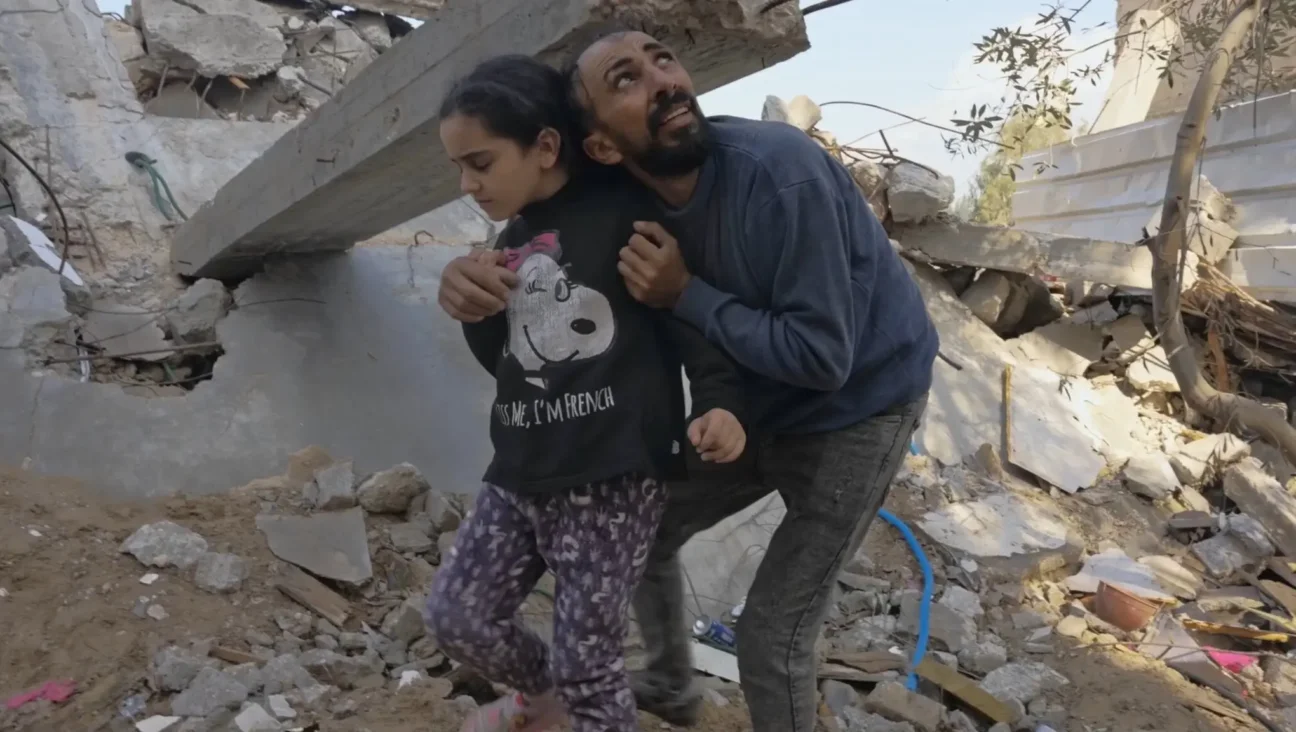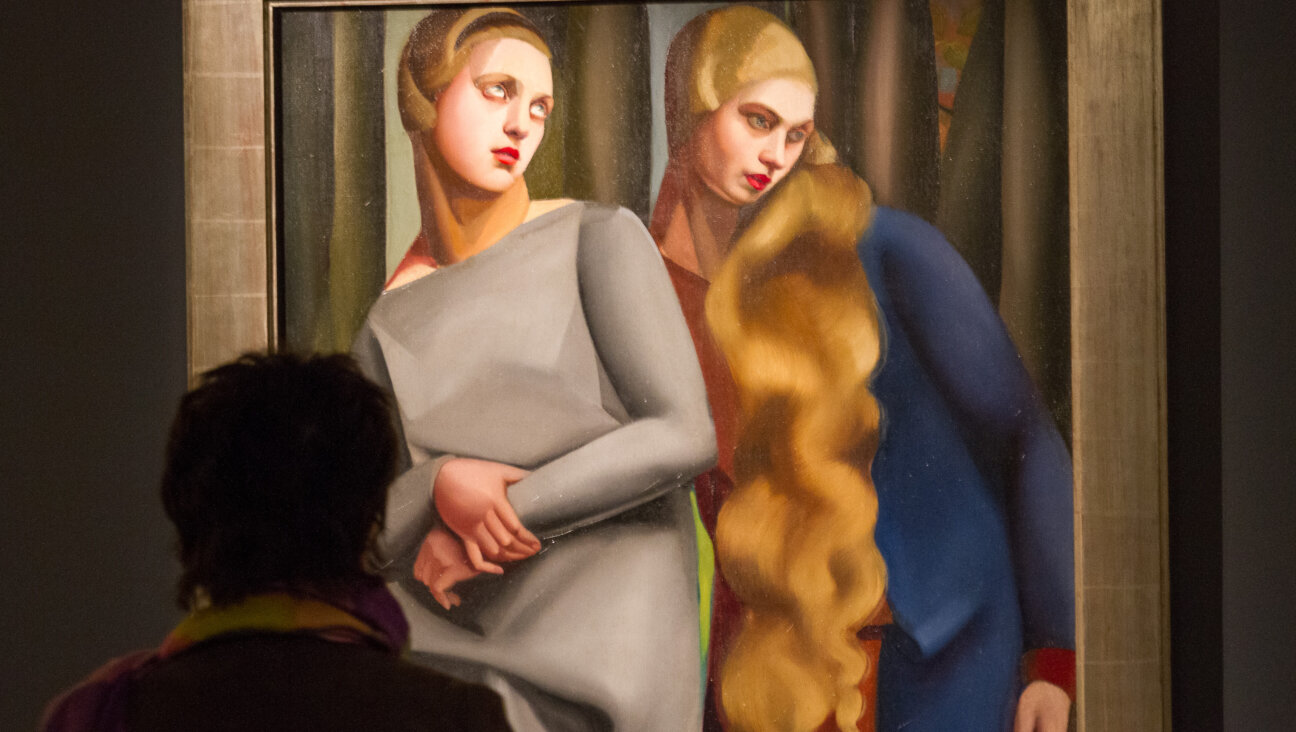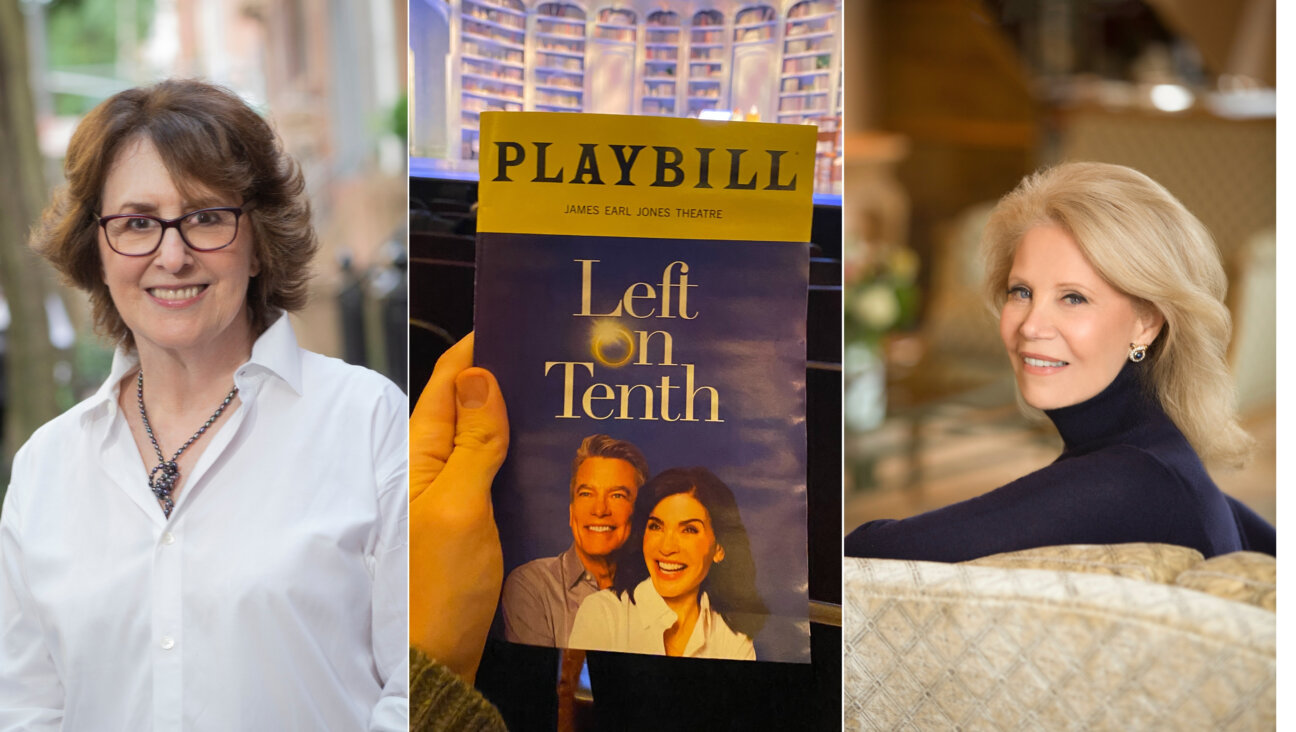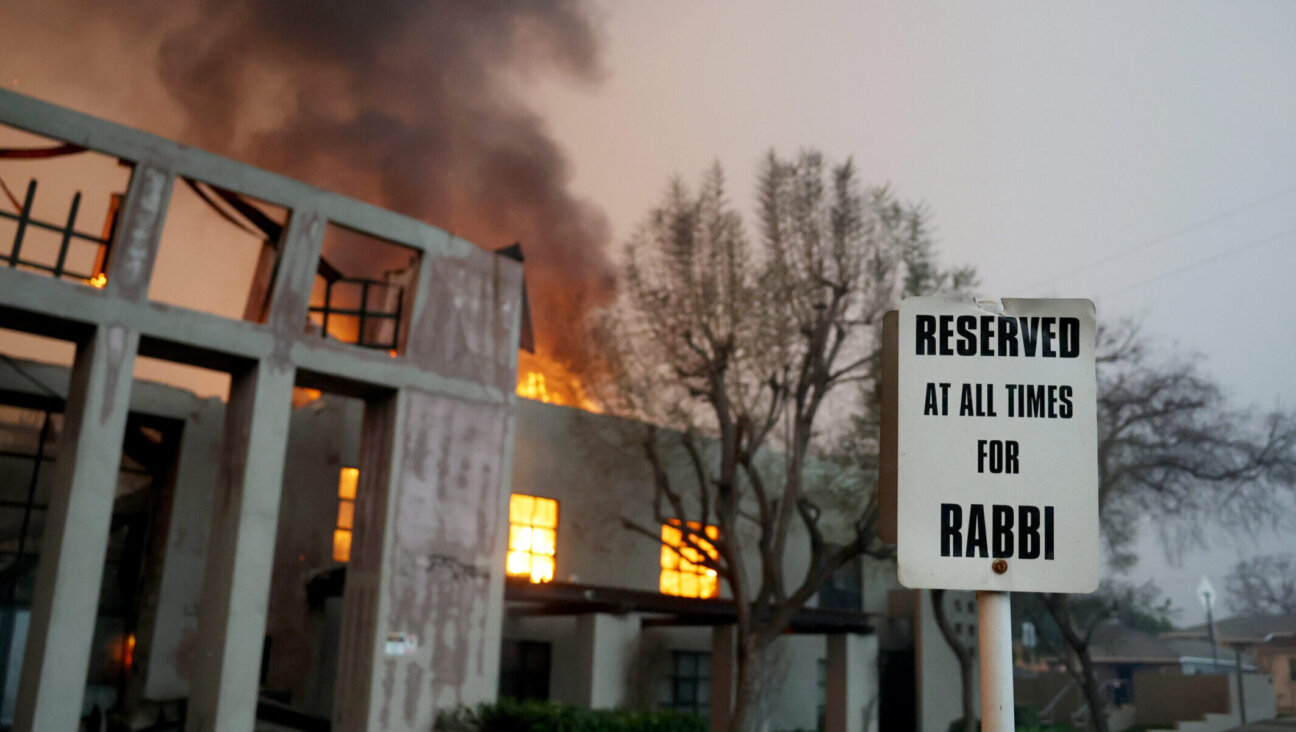Meet the Talmud-quoting, hotdog-whispering detective from Peacock’s latest show
Jeff Wilbusch from ‘Unorthodox’ brings his past to bear on a new character in ‘The Calling’
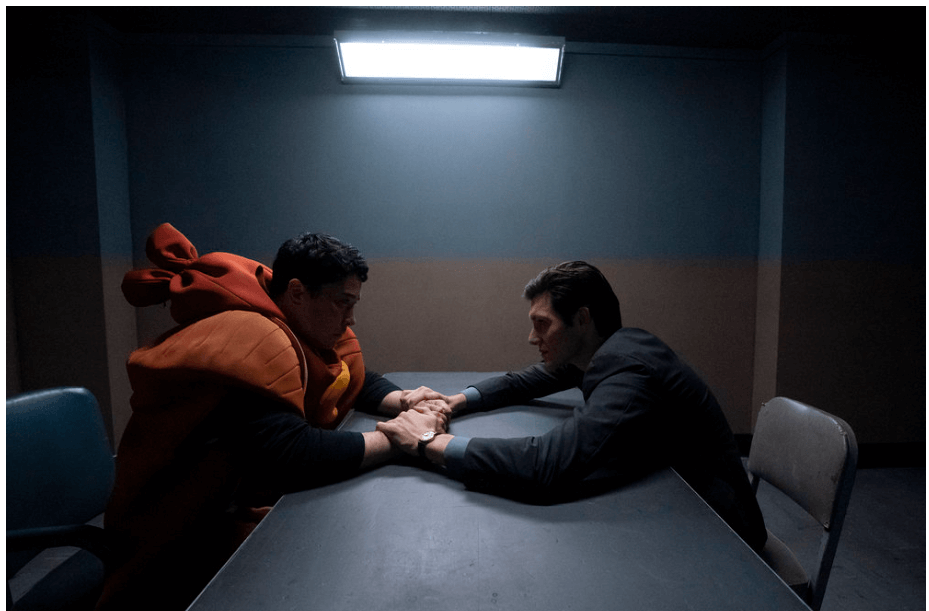
Jeff Wilbusch, as Avraham Avraham, shows deep empathy for a suspect in a hotdog suit. Photo by Heidi Gutman/Peacock
Peacock’s “The Calling” begins with a man in a hotdog suit booked for murder and a detective saying a Hebrew prayer over a victim’s body. It’s not your normal prime-time procedural and the detective is no ordinary policeman.
NYPD detective Avraham Avraham, played by Jeff Wilbusch, whom you may remember as the gun-toting Moishe from “Unorthodox” or as slick diplomat Uri Savir in “Oslo,” was inspired by Dror Mishani’s series of novels. Series creator David E. Kelley lifted the scene from Tel Aviv to New York City, and, while keeping the details of the crimes largely the same, reimagined Avraham.
He’s no longer Mizrahi, and, with his regular smattering of Yiddish and unique spiritual evolution, he’s a better match for the man playing him.
“It was written very for me, I feel,” Wilbusch said in a video interview. The actor grew up in the Satmar community in Jerusalem, leaving it in his teens. “My past is part of this character.”
,Avraham’s practice is a bit hard to pin down, which often confuses his colleagues. He doesn’t keep kosher or wear a kippah, but identifies as Orthodox. He pulls over to pray on the job, but also seems divinely inspired to draw pictures of fish while mulling over a case. When his new partner Janine (Juliana Canfield from “Succession”), asks to go to his temple, he says that men and women worship separately at his shul. Yet, the only time we see him attend services, men and women are seated together singing along to “Am Yisrael Chai.”
“He’s sort of defining it for himself,” said executive producer Jason Horwitch, writer of FX’s “The Pentagon Papers” and Netflix’s “Luke Cage.” “He is a person of faith, he’s a believer and he believes in God and he identifies as a Jew, and beyond those things I don’t think he feels beholden to adhere to any one orthodoxy.”
While the specifics of Avraham’s past — including the murder of his father, which happened when Avi was a boy — remain a mystery by the end of the season, I was surprised to to glean that he came from a more secular background and found religion later. The character’s name, Wilbusch’s accent and his fluency in Yiddish, seem to suggest otherwise. But the journey to a more a place of faith was important for Kelley to emphasize.
“He’s become more observant rather than sort of starting Orthodox and then shedding it,” said Horwitch. “It does make you wonder if what he’s seen on the job as a beat cop first and then as a detective has made him more observant and more religious — I can tell you it’s definitely made him more spiritual.”
Avraham quips that he grew up in Crown Heights while disarming a gunman, and works in neighborhoods where Jews are often targeted for antisemitic attacks. At one point, he upbraids Janine for making a crack about minyans after he interviews Haredi men for a missing person’s case. But the producers say they didn’t want the issue of antisemitism to overshadow Avi’s more universal concern for humanity.
“His faith at the end of the day was just a belief in mankind, a character who believes in people,” said Matthew Tinker, Kelley’s producing partner.
Indeed, one of the first things we hear from Avi is that the Talmud “teaches to see a single human being as the whole world. That each person is entitled to infinite respect and concern.”
This he offers in answer to his sympathy for the man in the hotdog suit, who he’s just finished questioning about a murder.
I asked Wilbusch how he kept a straight face sitting across from someone dressed as a “Mr. Footlong” mascot.
“I think Avraham is very empathetic to him,” Wilbusch said. “Also the decision to keep him in a costume is to tap into his emotional world, and I think Avi truly respects him.”
“And I think me, as Jeff, I cared about the actor. It was way too hot under this costume. It was New York, it was July. It was so hot!”
A message from our Publisher & CEO Rachel Fishman Feddersen

I hope you appreciated this article. Before you go, I’d like to ask you to please support the Forward’s award-winning, nonprofit journalism so that we can be prepared for whatever news 2025 brings.
At a time when other newsrooms are closing or cutting back, the Forward has removed its paywall and invested additional resources to report on the ground from Israel and around the U.S. on the impact of the war, rising antisemitism and polarized discourse.
Readers like you make it all possible. Support our work by becoming a Forward Member and connect with our journalism and your community.
— Rachel Fishman Feddersen, Publisher and CEO








